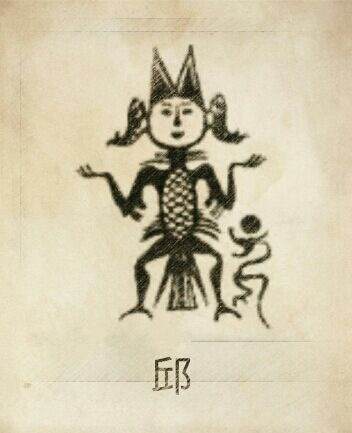The Qiu(qiū) surname is one of China’s most historically rich family names, reflecting the cultural resilience and diversity of Chinese civilization. This article explores the origins, historical figures, cultural significance, and social impact of the Qiu surname, offering a comprehensive look at its enduring legacy.

1. Origins of the Qiu Surname:
1. Jiang Clan Branch:
The Qiu surname traces its origins to Jiang Ziya (also known as Lü Shang), a descendant of the legendary Emperor Yan. Jiang Ziya helped establish the Zhou Dynasty and was granted the fiefdom of Qi, with its capital at Yingqiu (modern-day Linzi, Shandong). Some of his descendants adopted "Qiu" (丘) from the name of the capital.
2. Name Taboos:
Han Dynasty: During the Eastern Han Dynasty, Emperor Ming’s given name, Liu Zhuang, sounded similar to "Qiu," leading some families to change their surname to "Qiu" to avoid taboo.
Qing Dynasty: In 1725, Emperor Yongzheng issued an edict requiring all families with the surname "Qiu"(丘) to change it to "Qiu"(邱) out of respect for Confucius, whose given name was Qiu (丘).
3. Geographic Origins:
During the Zhou Dynasty, officials responsible for managing hilly areas were called "Qiu Guan," and their descendants adopted "Qiu" as their surname.
4. Ethnic Assimilation:
During the Northern and Southern Dynasties, the Xianbei tribes’ Qiulin and Qiudun clans adopted the Qiu surname. Later, during the Qing Dynasty, the Manchu Gaojia clan also adopted the Qiu surname, enriching its diversity.
Ⅱ、Historical Figures:
1. Politics and Military:
Qiu Jun: A Ming Dynasty scholar and official, he authored Supplement to the Great Learning, a work that influenced Chinese political thought.
Qiu Shaoyun: A martyr of the Chinese People’s Volunteer Army during the Korean War, remembered for his sacrifice and heroism.
2. Literature and Religion:
Qiu Chuji: A Taoist master and founder of the Longmen sect, he was revered by Genghis Khan and played a key role in promoting Taoism.
Qiu Chi: A Southern Dynasty writer known for his persuasive letter To Chen Bozhi, which convinced a Northern Wei general to surrender.
3. Philosophical Pioneers:
Qiu Wuzi: A disciple of Confucius, his parable about filial piety, "The tree wants to be still, but the wind won’t stop," has influenced East Asian ethics.
Qiu Fengjia: A late Qing Dynasty patriot who advocated for the restoration of the "Qiu" surname and promoted cultural awareness.
4. Modern Reformers:
Qiu Yuancai: A Taiping Rebellion general who pioneered innovative military tactics.
Qiu Qingquan: A Nationalist general during the Second Sino-Japanese War, known for his "rolling drum" tactics against Japanese forces.
Ⅲ、Cultural Significance:
1.Ancestral Halls and Clan Names:
The Qiu family is associated with ancestral halls and clan names like "Henan," "Wuxing," and "Wenzhuang," reflecting their regional and moral legacy.
2.Family Ties:
During the Song Dynasty, the Zeng and Qiu families formed a unique bond through marriage, creating a tradition of mutual respect and cultural exchange.
3.Environmental Stewardship:
For over 300 years, the Qiu family in Qingcheng, Gansu, has maintained the Puzhe Canal, a vital irrigation system along the Yellow River, showcasing their commitment to community and sustainability.
Ⅳ、Social Impact:
1.Population and Distribution:
Today, there are approximately 3.8 million people with the Qiu surname, primarily concentrated in Fujian, Guangdong, and Taiwan, forming a "Southeast Coast-Taiwan" corridor.
2.Overseas Influence:
The Qiu family has a significant presence among overseas Chinese communities, particularly in Southeast Asia. The Qiu Clan Ancestral Hall in Singapore serves as a hub for transnational family networks, fostering economic and cultural ties.
3.Modern Contributions:
From mathematician Qiu Chengtong (Fields Medal winner) to scientist Qiu Ji, the Qiu family continues to make significant contributions across various fields.
Conclusion
The history of the Qiu surname is an epic of adaptation, cultural integration, and resilience. From its origins in ancient China to its modern-day global presence, the Qiu surname has upheld the values of loyalty and cultural stewardship while embracing change. This millennia-old legacy is a testament to the enduring spirit of Chinese civilization.